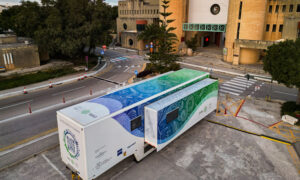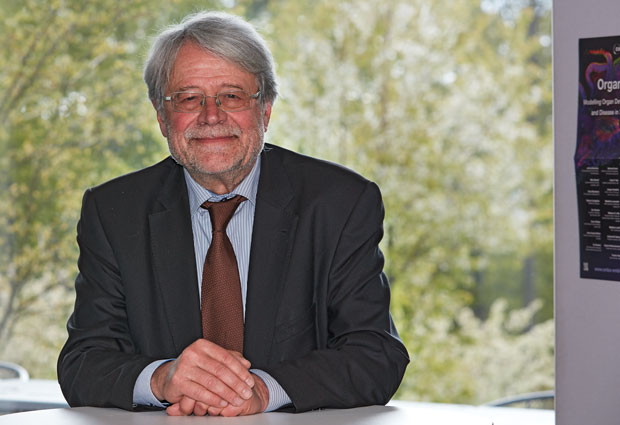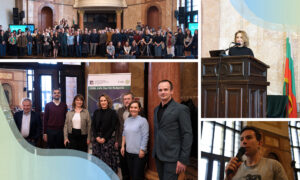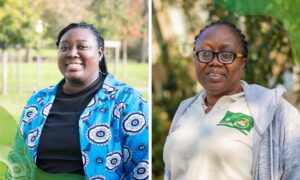
Fundraising dimensions
EMBL’s Heidelberg site hosts the inaugural European Conference of Life Science Funders and Foundations

In this ‘century of the life sciences’, researchers are increasingly supported by governments, funders and private citizens to address some of humankind’s most pressing challenges: preventing famine, mitigating global warming, protecting biodiversity, sourcing safe and renewable energy and meeting the biomedical needs of an ageing population.
The inaugural European Conference of Life Science Funders and Foundations, which took place in April, included talks from Leroy Hood, Tim Hunt and Mark Walport, and brought together life science researchers with representatives from business, foundations and research funding across Europe. The programme covered not only how research is changing, but also how funding is adapting in response – and what needs to change for Europe to remain competitive.
The scale and complexity of these challenges demands a long-term view, and participants at the event heard a wide range of perspectives on the issue. Delegates at the conference discussed emerging schemes and explored how new models of financial support – underpinned by entrepreneurship, philanthropy and private investment – could be used to greatest advantage, transforming discoveries into meaningful applications.
Marc Zabeau: Europe needs more entrepreneurship
“In Europe, we have great ideas and excellent scientists,” says EMBL alumnus Marc Zabeau, who moderated a session of experts from venture capital and investment firms on ‘Coping with complexity and keeping European biotech competitive’. “But we’re missing the financial strength that the US ecosystem has. We’re also short on entrepreneurship.
“You need an ecosystem to build a biotech industry, and this takes more than one generation,” continues Zabeau. “You need a critical mass of talent with young graduates who are excited in this field, you need entrepreneurs, and you need to learn from success stories.”
Private investment and innovation can be risky – something that Zabeau has experienced first-hand. Within five years of leaving his position as an EMBL group leader in Cell Biology and Biophysics (1978–1983), he had built his own biotech services company. He soon realised that interest in his products did not match people’s willingness to pay for them, and the company went bankrupt. “I didn’t see this as a failure,” Zabeau says. “You have to make this kind of mistake once in your life to understand what entrepreneurship is all about.”
Serial entrepreneur
Rather than letting it stop him, Zabeau’s experience pushed him to become a serial entrepreneur. In 2012, he founded Qbic, a venture capital fund that aims to transform technological discoveries in universities and research institutes into sustainable business – and he is optimistic European science can rise to funding and investment challenges. “The future is bright,” he says. “The generation of my kids is more entrepreneurial than their parents. There are now more opportunities at universities. The number of companies created by young people now is amazing. Hence, I believe we can be competitive with the rest of the world.”


